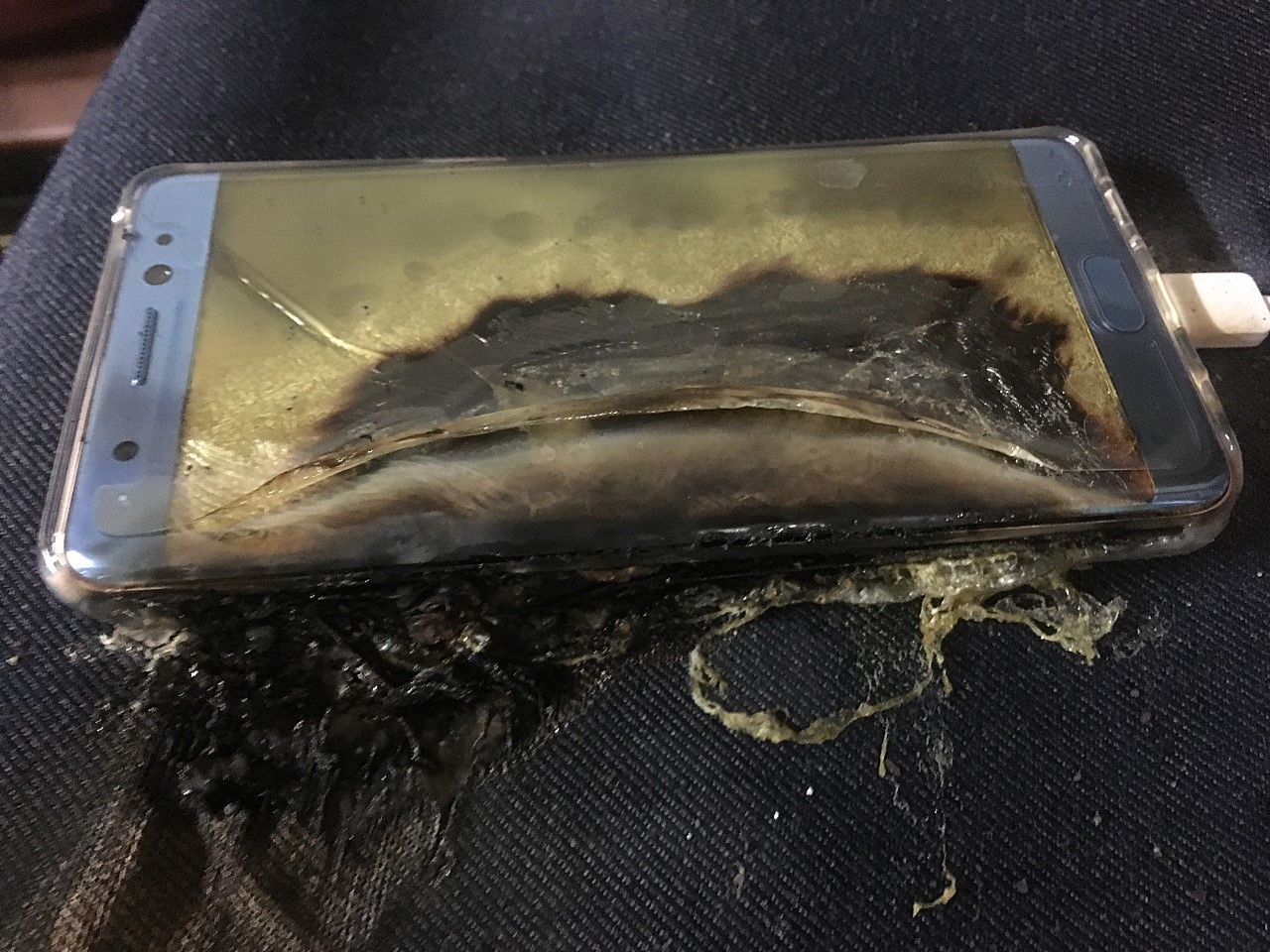CREDIBILITY: Samsung’s failure with the new Galaxy Note 7 highlights the company’s flaws, raising concerns about the company’s trustworthiness.
By Ernie Mendez, Staff Writer
Samsung, a South Korean electronics company, has recently gained notoriety for its newest version of the popular “Galaxy Note” series of smartphones: the Galaxy Note 7 released on August 19. Users have reported that their devices are exploding, and in some cases there have been serious injuries. This problem comes from the Note 7’s battery, which would begin to smoke and had the potential to explode.
Samsung claims to have sold around 2.5 million Note 7s worldwide. The Note 7 was officially recalled in the United States, while in other countries Samsung offered replacement deals. On October 11, Samsung officially told its users to stop using any Note 7 and immediately return them.
The company has officially stopped the production of their flagship smartphone, leaving many to wonder where Samsung will go from here. The company’s next step may be their most important, as they try to win back their customers’ trust. Those customers however, should not be tempted to go back to Samsung so quickly. Samsung users have been lied to and their safety was put at risk. Any “loyal” customer should look beyond their bias and realize Samsung has violated their trust with them. Consumers should not give their trust or their hard-earned money to another greedy company that merely promises to do better in the future. There also may have been ways to avoid problems with the battery if Samsung took more precautionary measures.
According to an article published by The Wall Street Journal titled, “Samsung Self-Tested Batteries in Galaxy Note 7 Phone,” written by Ryan Knutson and Eun-Young Jeong, “to sell smartphones at major U.S. carriers, phone makers are required to test batteries at one of the 28 labs certified by the U.S. wireless industry’s trade group, the [Cellular Telecommunications Industry Association] CTIA, to insure compliance with standards set by the Institute of Electrical and Electronic Engineers.” Samsung however, tests their batteries at a lab owned by them, which no other smartphone maker does. Through their own labs, they are still able to get CTIA certified, and they are able to distribute their product to U.S. carriers. Samsung seems to finally be paying for the loophole that they have found, and when it comes to endangering people for their own profit, losing their trust is a well-deserved punishment. This raises the question: will Samsung opt for a third party to test their batteries, or should they have been allowed to do this at all in the first place?
Samsung’s incident has varying opinions. Some people think this is an isolated incident, while others have decided to abandon the brand completely. Certain estimates claim that the technological company Apple Inc. will gain around five to seven million new smartphone users due to this incident. Trust is something consumers look for, and it makes sense. “I can’t trust their next product, but people will still probably buy it. If it goes good they will build trust back but if it goes bad then they are practically done,” Poly student Juan Morales (12) said.
Despite Samsung’s process of recalling their smartphone, sending out newer models and finally discontinuing the production of Note 7’s completely, a claim estimates that around 40 percent of consumers of the Note 7 still have them. Some may call this “loyalty,” but it is more accurate to call it illogical. Any Note 7 has the potential to explode, cause severe property damage and injury to the user. The problem is so serious that the Note 7 has been banned from all U.S. airlines. It is now a federal crime if someone decides to sneak a Note 7 on an airplane. In fact, on October 15, a Southwest Airlines flight was forced to evacuate all of its passengers due to a Samsung device that began smoking and “popped” during boarding. Luckily, it was only during the boarding process; emergency landing was not necessary and there were no injuries.
Overall, Samsung’s strategy to test their batteries through labs they own has red flags all over it. Perhaps technological companies in general need to slow down and take time to make a product that meets basic requirement such as customer safety. Samsung’s strategy needs to change. Consumers do not appreciate the constant need to fork out large sums of money for constantly “improving” technology. In the end, Samsung, like every other company, wants to make a profit, and what they are willing to sacrifice for this profit is up to them. The consumers can only decide for themselves if a company deserves their loyalty and if the company really has the customer’s best interests in mind.

